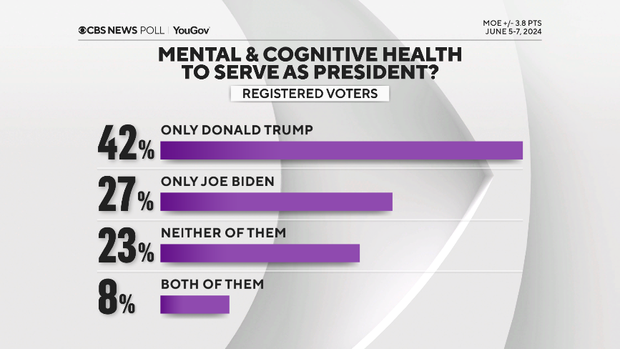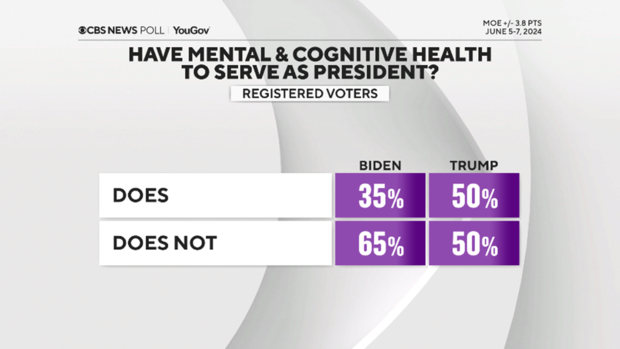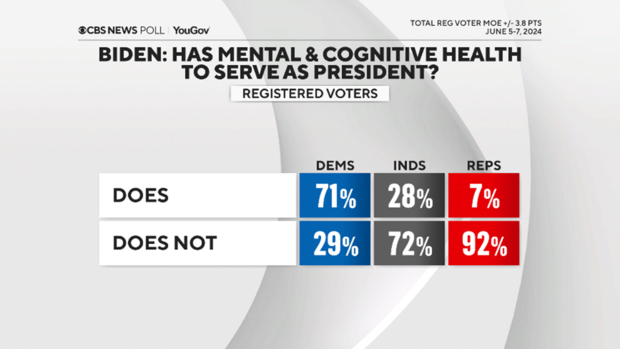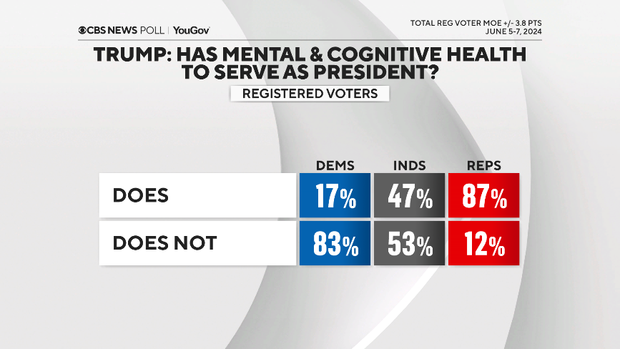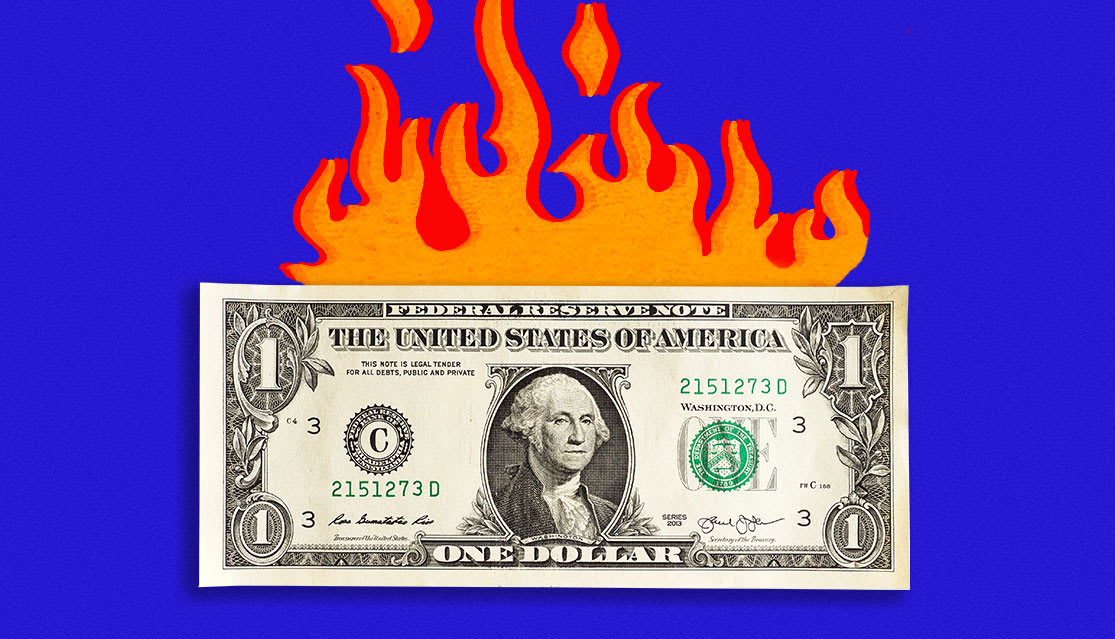Poll analysis: Do Trump and Biden have the mental and cognitive health to serve as president?
A quarter of the nation's voters think neither President Biden nor former President Donald Trump has the mental and cognitive health to serve as president.
While partisanship plays a role in these perceptions, that's led to what may be a tough tradeoff for some voters, with many independents voting for someone — whether Mr. Biden or Trump — who they don't think has the cognitive ability to serve.
Trump fares relatively better than Mr. Biden in perception of cognitive ability, though neither is drawing wide confidence.
Only about a third of voters think Mr. Biden has the cognitive ability. Half of voters think Trump does.
These views are largely unchanged over recent months.
Views are related to partisanship, but Democrats are more skeptical about Mr. Biden's cognitive health — one in three are — than Republicans are about Trump's.
Even so, the Democrats who don't think Mr. Biden has capacity to serve are still voting for him over Trump.
Republicans, for their part, are even more skeptical about Mr. Biden, contributing to his lower overall numbers.
Similar to opinions of voters overall, more independents view Trump as having the mental and cognitive health to serve, more than say that about Mr. Biden.
These views are connected to vote: most of the independents who think Mr. Biden does not have the cognitive health to serve as president are backing Trump, and those who don't think Trump has the cognitive health are backing Mr. Biden.
Fred Backus contributed to this report.
This CBS News/YouGov survey was conducted with a nationally representative sample of 2,063 U.S. adult residents interviewed between June 5-7, 2024. The data includes an oversample in Arizona, Georgia, Michigan, Nevada, North Carolina, Pennsylvania, and Wisconsin. The sample was weighted by gender, age, race, and education, based on the U.S. Census American Community Survey and Current Population Survey, as well as past vote. The margin of error is ±3.2 points among all adults and ±3.8 points among registered voters.

